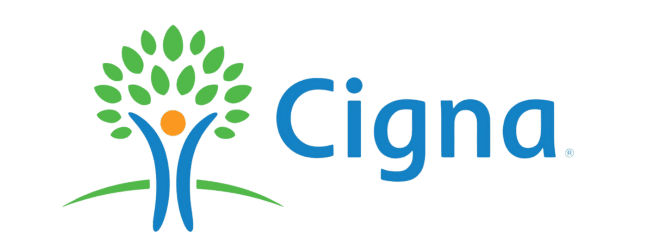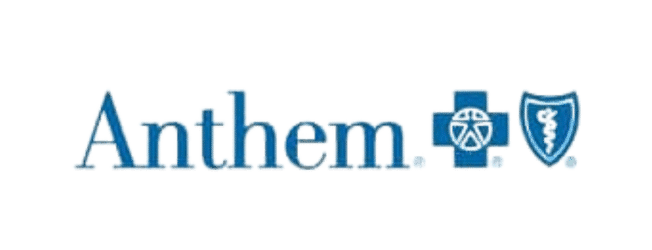Hey there! If you’re here, chances are you or someone you care about is dealing with dual diagnosis—a challenging situation where someone is facing both mental health disorders and substance use disorder at the same time. It’s a tough combination, but better understanding can be the first step toward effective management and recovery.
Essential Takeaways
- Dual Diagnosis Requires Integrated Treatment: Addressing both mental health conditions and substance abuse simultaneously is crucial for effective recovery. An integrated approach ensures that all aspects of an individual’s health are considered.
- Recognize and Address Symptoms Early: Identifying the signs of dual diagnosis early can lead to more effective treatment and better outcomes. Look out for overlapping symptoms, including psychiatric symptoms and behavioral signs, and seek professional help when needed.
- Support Systems and Self-Care Are Vital: Building a strong support system and adopting healthy lifestyle habits play a significant role in managing dual diagnosis. Engaging with support groups and practicing self-care can enhance recovery and long-term success.
In this guide, we’ll explore what dual diagnosis means, how it affects individuals, and most importantly, how to navigate it with practical strategies and support. So, let’s dive in and unravel this complex topic together.
Understanding Dual Diagnosis: What Does It Mean?
Definition of Dual Diagnosis
Dual diagnosis, also known as co-occurring disorders, refers to the condition where someone struggles with both a mental health condition and substance use disorder simultaneously. This could mean battling depressive disorder while also dealing with alcohol use disorder, or managing anxiety disorders while struggling with drug addiction. It’s not uncommon—many people experience this issue, and understanding it is key to finding the right help.
The Connection Between Mental Health Disorders and Addiction
How Mental Health Disorders Can Lead to Substance Abuse
Mental health disorders can often be intertwined with substance abuse. Imagine dealing with chronic anxiety or deep-seated depression. For some, substances might seem like a way to cope, even though they often make things worse in the long run. People might use drugs or alcohol to self-medicate symptoms, thinking it will help them manage their mental health or escape their feelings. Unfortunately, this can create a vicious cycle where addiction compounds the original mental disorders.
How Addiction Can Exacerbate Mental Health Disorders
On the flip side, addiction itself can aggravate existing mental health issues. Substance abuse can alter brain chemistry, which may worsen conditions like generalized anxiety disorder or bipolar disorder. The stress and lifestyle changes associated with addiction—like strained relationships, financial issues, and legal troubles—can also deepen mental health struggles. Both conditions feed off each other, making it harder to find a way out.
Recognizing the Signs and Symptoms
Common Symptoms of Dual Diagnosis
Recognizing the symptoms of dual diagnosis can be tricky since the signs of mental health disorders and substance use issues often overlap. Let’s break down some of the common symptoms:
Signs of Mental Health Disorders
- Mood Swings: Frequent and intense mood changes can be a sign of various mood disorders, such as bipolar disorder or major depression.
- Persistent Sadness or Hopelessness: Feeling overwhelmed by sadness or hopelessness is common in depressive disorders.
- Anxiety or Panic Attacks: Symptoms like constant worry, restlessness, or panic disorder can indicate an anxiety disorder.
Signs of Substance Abuse
- Increased Tolerance: Needing more of a substance to achieve the same effects can be a sign of developing addiction.
- Withdrawal Symptoms: Experiencing physical or emotional symptoms when not using the substance can indicate dependence.
- Neglecting Responsibilities: Struggling to fulfill daily responsibilities due to substance use is a key sign of addiction.
Overlapping Symptoms
Sometimes, symptoms of mental health disorders and addiction can overlap, making it harder to distinguish between them. For instance, both conditions might cause issues with concentration, energy levels, or sleep patterns. This overlap means that addressing both conditions simultaneously is crucial for effective treatment.
When to Seek Professional Help
Identifying the Right Time to Reach Out
Knowing when to seek help is crucial. If you or someone you know is experiencing a combination of mental health issues and substance abuse, it’s important to reach out for professional assistance. Here are some signs that it might be time to seek help:
- Inability to Manage Daily Life: Struggling with everyday tasks due to mental health or addiction issues.
- Escalating Substance Use: Increasing dependence on substances to cope with mental health symptoms.
- Continued Struggles Despite Efforts: If attempts to manage symptoms on your own are not working, professional support might be necessary.
Types of Professionals Who Can Help
When it comes to dual diagnosis, a team approach often works best. Here are some healthcare providers who can play a role in the treatment process:
- Therapists and Counselors: They provide individual and group therapy, helping individuals work through their mental health and addiction issues.
- Psychiatrists: Medical doctors who can prescribe and manage medications for mental disorders and addiction.
- Addiction Specialists: Professionals with expertise in treating substance use disorders, including detoxification and rehabilitation.
Treatment Approaches
Integrated Treatment for Dual Diagnosis
What is Integrated Treatment?
Integrated treatment is a comprehensive approach where both mental health disorders and substance abuse are addressed simultaneously. This approach is vital because treating one without addressing the other often leads to incomplete recovery. Integrated treatment ensures that all aspects of a person’s mental and physical health are considered, leading to more effective outcomes.
Components of Integrated Treatment
- Therapy: Both individual and group therapy are essential components. Behavioral therapy can help individuals understand and manage their mental health symptoms and addiction.
- Medication: Prescribed medications may be used to manage mental health symptoms and reduce cravings or withdrawal symptoms.
- Support Groups: Participation in support groups provides additional social support and shared experiences from others dealing with similar issues.
Therapy Options for Dual Diagnosis
Cognitive Behavioral Therapy (CBT)
Cognitive Behavioral Therapy (CBT) is a widely used therapeutic approach that helps individuals identify and change negative thought patterns and behaviors. For dual diagnosis, CBT can be particularly effective as it addresses both mental health symptoms and substance abuse by focusing on changing unhealthy behaviors and thought patterns.
Dialectical Behavior Therapy (DBT)
Dialectical Behavior Therapy (DBT) is another therapeutic approach that combines cognitive-behavioral techniques with mindfulness and acceptance strategies. DBT is especially helpful for managing intense emotions and self-destructive behaviors, which are common in individuals with dual diagnosis. It can help individuals develop healthier coping mechanisms and improve emotional regulation.
Motivational Interviewing
Motivational Interviewing is a client-centered approach that helps individuals resolve ambivalence about changing their behaviors. This therapy is useful for encouraging individuals to make positive changes in their substance use and engage in treatment. It focuses on building motivation and reinforcing a person’s commitment to change.
Medication Management
Types of Medications Used
Medication management is a crucial component of treating dual diagnosis. The types of medications used can vary based on the specific mental health conditions and substance use disorders involved. Common medications might include:
- Antidepressants: Used to manage symptoms of depression and anxiety.
- Antianxiety Medications: Help with anxiety disorders and panic disorders.
- Medications for Substance Dependence: Such as methadone or buprenorphine for opioid addiction, or naltrexone for alcohol dependence.
Managing Medication Interactions
When dealing with dual diagnosis, managing medication interactions is crucial. Individuals may be on multiple medications for both their mental health and substance use disorders. It’s important for healthcare providers to monitor these interactions closely to avoid adverse effects and ensure that the medications are working effectively.
Coping Strategies and Support
Building a Support System
Importance of Family and Friends
Having a strong support system can make a significant difference in the recovery process. Family and friends can offer emotional support, encouragement, and practical help. They can also play a key role in motivating individuals to stick with their treatment plans and stay focused on their recovery goals.
Finding Support Groups and Communities
Support groups and community resources provide additional layers of support. Joining groups where individuals share similar experiences can be incredibly validating and encouraging. These groups often offer a safe space to discuss challenges, share strategies, and receive support from others who understand what you’re going through.
Self-Care and Lifestyle Changes
Developing Healthy Habits
Adopting healthy lifestyle habits can support overall well-being and recovery. This includes:
- Balanced Diet: Eating a nutritious diet to support physical health.
- Regular Exercise: Engaging in physical activity to improve mood and reduce stress.
- Adequate Sleep: Ensuring sufficient rest to help with mental health and recovery.
Mindfulness and Stress Management
Mindfulness practices and stress management techniques can also be beneficial. Techniques such as meditation, yoga, and deep-breathing exercises help manage stress and improve emotional well-being. These practices can be valuable tools in maintaining recovery and enhancing overall mental health.
Relapse Prevention and Long-Term Recovery
Understanding Triggers and High-Risk Situations
Understanding personal triggers and high-risk situations is essential for preventing relapse. Individuals should work with their healthcare providers to identify these triggers and develop strategies to cope with them effectively. This can include avoiding certain environments or people associated with substance use.
Creating a Relapse Prevention Plan
A relapse prevention plan outlines strategies and resources for maintaining recovery. It should include coping strategies, emergency contacts, and support resources to turn to if cravings or challenges arise. Having a plan in place can increase confidence and preparedness in the face of potential setbacks.
Conclusion
Navigating dual diagnosis can feel overwhelming, but remember that recovery is possible. By seeking professional help, building a strong support system, and adopting healthy habits, individuals can manage their mental health disorders and substance use disorders effectively. You don’t have to face this journey alone—help is available, and there’s hope for a brighter future.
If you or someone you know is struggling with dual diagnosis, don’t hesitate to reach out for help. Together, we can break the cycle and pave the way toward healing and recovery.















